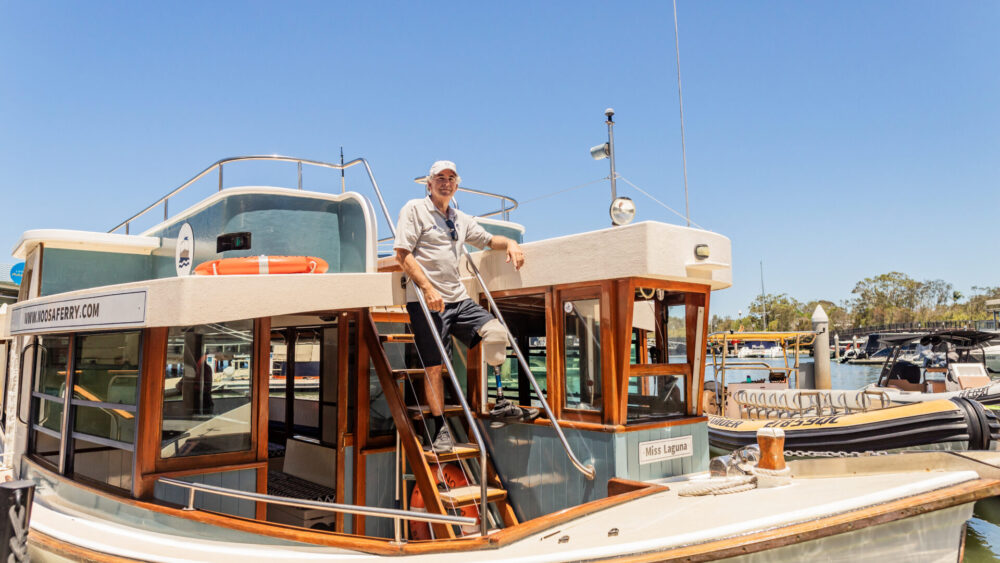As Queensland Road Safety Week (18-22 August) approaches, the North Coast region – including the Sunshine Coast, Moreton Bay and Wide Bay Burnett – has recorded the highest number of road fatalities in Queensland this year.
According to the latest data from the Department of Transport and Main Roads (TMR), 52 of Queensland’s 187 road deaths in 2025 have occurred in the North Coast region – marking a 48.6 per cent increase on the same period last year and a 25 per cent rise on the region’s five-year average.[1]
Sunshine Coast personal injury lawyer Greg Spinda from Travis Schultz & Partners says the data on road fatalities and hospitalisations is disturbing and drivers need to pause to realise the impact of their actions on our roads.
“Already this year, the North Coast region accounts for almost 30 per cent of all fatalities statewide – 52 lives lost – and every number in these statistics represents someone’s mum, dad, child, sibling or friend. Each loss ripples through families, communities and adds to an already stretched health system,” Mr Spinda said.
“Speeding, drinking and drug use are what we tend to hear about when it comes to breaking the road rules, however the number of distracted and inattentive drivers has continued to rise over the past five years – often with devastating consequences.”
One such harrowing story is that of Noosa local Wes Raddysh who in 2022 – on his way to a job interview for his dream job as a skipper with Noosa Ferries – was hit by a car, resulting in the loss of his left leg.
Mr Raddysh said that driver’s fraction of a second of distraction cost him much of his quality of life and changed his idyllic semi-retirement plan in Noosa forever.
“If I had been a second earlier or later my life wouldn’t have changed but in that split second, he came straight into my motorbike and, despite only travelling at around 8km per hour, the impact was devastating,” Mr Raddysh said.
“I spent 38 days in hospital, needed seven operations and still have an ongoing battle with rehabilitation. There are so many things we all take for granted every day, we do them without thinking. For me, a simple thing like getting up to use the bathroom in the middle of the night means I’ve got to get into my wheelchair and wheel into the bathroom, and then inevitably I bang into the door frame or something on the way and wake up my wife Libby and the dog, or just getting something to eat or drink and trying to get it to the lounge without spilling it all over myself.
“The isolation is also very challenging. I was fit and active – and adventurous! I’ve ridden my push bike from Adelaide to Darwin and from the south to the north of Japan. I loved cycling or going for trail runs with friends and things like that.
“Now I’m in a wheelchair much of the time, stuck in the house not able to do many of the things I used to do, so a lot of people I used to spend time with, I don’t spend time with anymore.
“I am so lucky to be alive, and I do see every day as a gift, but the dream of having a beautiful property, lots of animals and an active lifestyle here in Noosa is no longer a reality. The property and animals are hard to manage and there are small things, like playing table tennis with my daughter and basketball with my son, that I really miss.
“I have to believe that maybe this happened to me so I can advocate for people to be more aware, to be more attentive when they drive, knowing that a split second of distraction can change someone else’s life forever.”
Mr Spinda said recent road rule changes introduced on 1 July – including increased fines and new 40 km/h speed limits in several Queensland tourist zones – are a welcome step toward improving safety and tackling the behaviours that put lives at risk.[2]
“Slowing down traffic in high distraction environments along tourist areas, city centres, where people walk, shop and cross the road is one of the simplest and most effective ways to save lives – but we need to see these changes applied more consistently,” Mr Spinda said.
“We’d also like to see crash ‘black spots’ publicly named, and more visibility around the number of claims and injuries in specific areas so that patterns can be identified and road authorities can make informed decisions on road funding allocations.”
As a personal injury lawyer, Mr Spinda said he is witnessing the consequences of selfish, inconsiderate and plainly foolish behaviours on the roads, which are ruining lives like that of Mr Raddysh.
“It seems few drivers remember the successful past campaigns on seatbelts, mobile phone usage and drink driving, and even fewer care for other road users.”
He is encouraging the Queensland government to invest in a concerted and provocative road safety campaign to bring home to drivers how their behaviour affects others.
“With 2024 the worst year for road trauma in 15 years, and 2025 already tracking worryingly high, the latest statistics are a tragic reminder of why Queensland Road Safety Week matters – and why we need to act to protect all road users.”
[1] Department of Transport and Main Roads, Queensland Road Crash Weekly Report, Year to Date to Sunday 17 August: https://www.publications.qld.gov.au/dataset/road-safety-statistics/resource/a5f24a26-f29b-4963-97ab-4d67a95836a5
[2] https://www.news.com.au/technology/motoring/on-the-road/major-changes-coming-to-road-rules-from-july-1-across-australia/news-story/dda448111b8b4d5267e69012e8df3235



